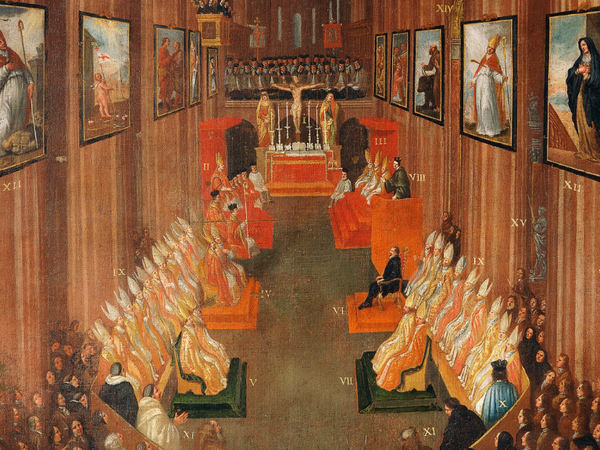The term “Synod” comes from the ancient Greek word for “coming together,” and refers to bishops gathering to pray and make decisions affecting the Catholic Church.
On Oct. 10, 2021, Pope Francis ordered a two-year process for bishops around the world to consult with everyone from parishioners to monks to sisters and others to determine how the church can better serve the faithful as well as society at large, and to make its governance more open and inclusive of all its members.
Auxiliary Bishop of Orange Timothy Freyer led the process for Region XI, which includes the 12 dioceses in California and two in Nevada.
Recently, the group published a 10-page summary of its findings after holding 3,290 in-person sessions with a total of 61,056 in-person participants. Another 284 virtual sessions included a total of 4,034 virtual participants.
Orange County Catholic sat down with Bishop Freyer to discuss the results of the Synod.
Q. Can you provide some background on this Synod?
It’s happened in phases. In the Synod’s first phase, every diocese worldwide was asked to come up with a process of listening to the people of God and those who have been estranged from the church, as well as the marginalized of society.
The Diocese of Orange was ahead of the curve.
We had a whole process six years ago where we held listening sessions throughout the entire Diocese that culminated with the promulgation of the diocesan pastoral plan, so we already had done a lot of this work.
Then, in 2017, we created our strategic plan, and that resulted from meeting with people from all corners of the Diocese.
A lot of what we asked was what this Synod is asking: What are your joys? What are your hopes? What are your challenges? How can we be better? Our findings were synthesized in our diocesan report to the Synod, and recently we completed the synthesized report from our 14 dioceses in our region of the country.
Q. Who participated in this effort?
We had a real diverse group of people. We had people from the religious, the laity, priests and myself, and my challenge to everyone was we had to read these reports), pray over them, determine what were the things we were hearing – not what we wanted to hear personally, or only what we agreed with.
Our job was to hear what the people of God were saying, and not opine about it. That’s what the Holy Father wants to know: What are they saying? Not what I think they should be saying.
Q. What is the purpose of this Synod?
To improve collaboration, to make sure we’re listening not just to the super-active people, but to everybody including the divorced, those who have left the Church, and even those who have never been Catholic.
Q. What were some of the key findings of the Synod?
The joy that people receive when they come together for the Sacraments, the strength that they receive through receiving the Sacraments, being part of the Catholic community. There’s a call for better preaching,
better faith formation and catechesis and better care for the poor and outcast.
In our Diocese, many people want the Church to continue its teaching on divorce and remarriage and care for the LGBTQIA+ community, and there are some who believe we need to be more welcoming while still being faithful to the church’s teachings.
Q. Did you enjoy leading this effort?
Yes. I enjoyed the different perspectives that people involved in the process had and I was edified that we have religious from very different ways of thinking and because it was a process rooted in prayer, agendas were never pushed, which is rare in our society.
We always had respectful, prayer-filled conversations.
Q. What happens next?
We sent our Region XI document to the U.S. Bishops Conference. They now are in the process of synthesizing all the documents into a national document. Then we will work with Canada to create a continental version of the document, and next year, the pope will
convene a meeting in Rome to review all synthesized Synod documents and prayerfully consider how to move forward as a Church that “journeys together” and what the Holy Spirit is calling us to do now.
The pope’s hope is this process will encourage us to have a more collaborative approach in all of our parishes and dioceses. He’s asking us to really look at how we come to decisions.
I think the Diocese of Orange is much more collaborative than other parts of the world. We do a lot of this to some degree already, but I think it’s a challenge for us to continue to ask ourselves, how do we listen better to the signs of the time?
For more information on the Diocese of Orange Synod 2021-2023, visit https://rcbo.org/synod/

